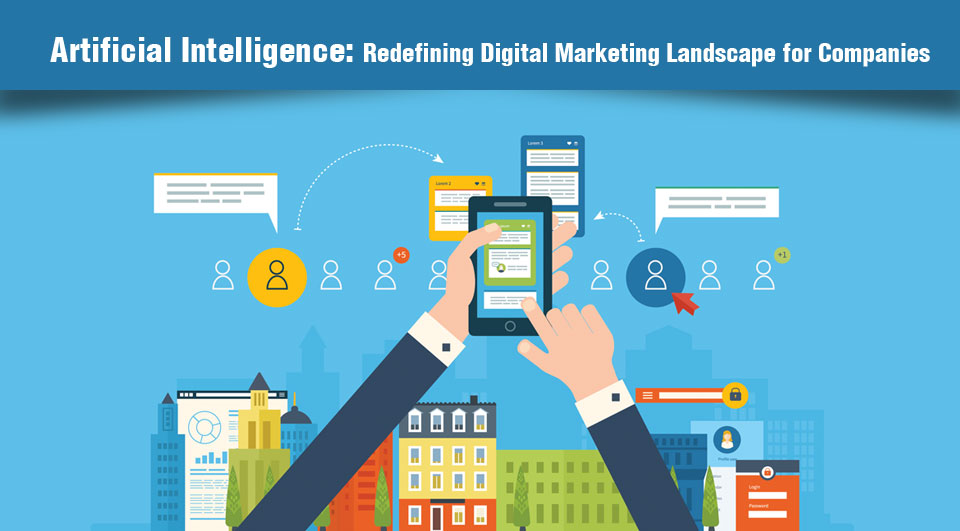Artificial Intelligence: Redefining Digital Marketing Landscape for Companies
When the mobile gaming phenomenon, Pokémon Go was launched in 2016, it instantly occupied the social and digital media landscape. Downloads of the app started with record breaking pace. There was even news on how much calories can be burnt by playing the game. One online news item published in Forbes revealed that, “In Japan, birthplace of the Pokémon franchise, McDonald’s became the game’s first big sponsor, converting each of its nearly 3,000 Japanese locations into PokéStops, real-world spots where users can load up on items to play the game, or Pokémon Gyms, where users can fight virtual battles with each other and gain strength in the game.”
The sudden popularity of the game saw many companies working out innovative ways to attract potential customers by this new game changing technology called Artificial Intelligence (AI) and Augmented Reality (AR).
Artificial Intelligence and Augmented Reality are the new in-thing in the digital space. These are two important innovations leading to the growth of exponential technologies in the world. Artificial Intelligence is being used in different industries and is providing marketers a new technology interface to find better ways to communicate with their customers. As per a recent online report published in Independent (http://www.independent.co.uk/), Social networking giant Facebook is using Artificial Intelligence (AI) to identify users having suicidal tendencies. The social network has developed algorithms capable of scanning posts and comments for signaling warning signs. The report further informs that, “The AI tool would send such posts to a human review team, which would get in touch with the user thought to be at risk and offer help, in the form of contact details for support services or a chat with a member of staff through Facebook Messenger”.
The Facebook Artificial Intelligence Research (FAIR) lab is focusing on active engagement with the research community for working on deep learning of machine intelligence to work even better. It has already automated customer interaction on Facebook using Chatbots. Chatbots are helping ecommerce companies to quickly address their customers’ queries online. This is also freeing up their customer service desk and providing them time to handle more critical issues of customers.
A.I. is expected to bring major shifts in customer relationship management through the digital and social media interface. In the age of automation, this new trend of instant digital interaction using spoken language by machine is shaping plethora of opportunities for developers and businesses. And the catalysts of this exponential technology are Smartphones. In fact, Smartphone developers are trying to create apps using Artificial Intelligence for every possible service that one might think of.
While A.I. chatbot technology is still evolving, this breakthrough technology innovation can lead us to an era of digitalization where brands will be conversing with consumers in a digitally powered user driven interface to carry out their services. A.I. enabled chatbots will liberate users from restricting online navigation to only one graphical area for carrying out actions. Users no longer will have to switch between apps or click multiple touchpoints on screen to perform actions. They can now chat with friends, interact with bot to reserve dinning space and/or freeze travel bookings with one single conversation. Looking at the future we seem to be heading towards the age of conversational commerce.
Lessons for Digital Marketers
Use of Artificial Intelligence can lead to good customer relationship management (CRM) practices. It can provide free space to customer service team for mining data to analyze what best suits their customer likings and interest etc. They can further use customer analytics for guiding their online shopping based on those findings using bots. Marketers can also use the digital information to enhance experiential marketing techniques for better brand interaction and product allurement.
However, it is also important for good marketers to understand that for more holistic customer satisfaction there should be a balance between virtual and real world. It has to have an amalgamation and appreciation of both digital and physical environments where one compliments the other. Those marketers who are able to strike a balance and make optimal use of both the set ups can lead their companies to a richer and a more personalized digital experience of conversational commerce.




